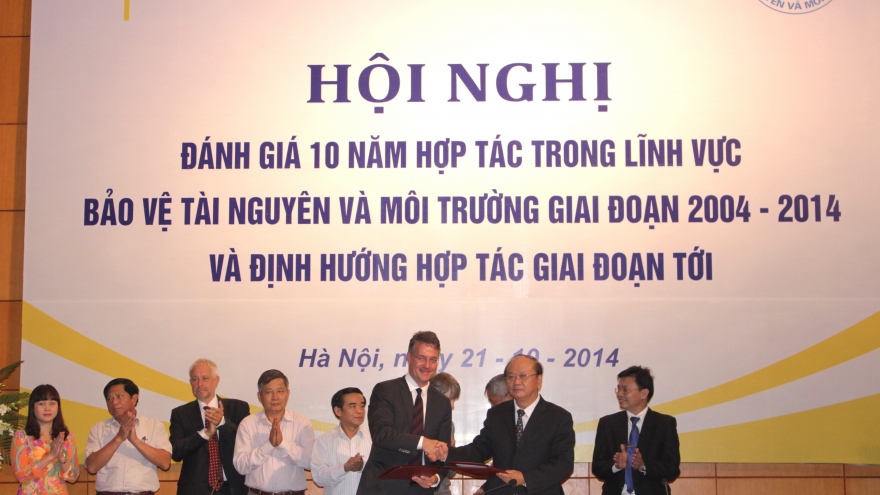Water supply to shift from subsidised to market mechanism
It is vital to shift from a subsidised to a market-based water supply mechanism in order to improve the efficiency of agricultural water use amid severe water shortages caused by historic drought in Vietnam.
 |
It was heard at the workshop “Sharing international experience on agricultural water pricing” held by the Ministry of Agriculture and Rural Development (MARD) in Hanoi on April 6.
Addressing the event, MARD Deputy Minister Hoang Van Thang said the government has subsidised irrigation services to ease the burden for farmers for many years.
The policy should be changed, in which agricultural water supply must follow a market mechanism to promote water conservation and sustainable farming practices, Thang noted, adding that the country needs to pursue a sustainable and climate change-adapted agriculture.
Pham Hong Giang, President of the Vietnam National Committee on Large Dams and Water Resources Development, said there are limited freshwater reserves while demand for water is on the rise, necessitating the pricing of farming water so as to reduce water waste.
According to Deputy Minister Thang, the market-based water pricing policy does not equate to less support for farmers as they will be assisted by the government in other ways.
Poor management of irrigation systems is a major problem, particularly in drought-hit areas, and it could be solved not only by the government but also with the involvement of people and the private sector, he stressed.
During the workshop, foreign experts shared practices on water pricing methods in several countries.
Water pricing will encourage water saving and effective distribution of the resource but it requires strict supervision, they said.
Many stated that there will be a long way to go before water supply can be managed in accordance with market principles in the country, especially in terms of policy making.


